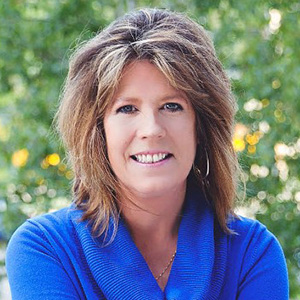The Evolution of Our Relationship with Sustainability

We remain committed to sustainability as a vital part of who we are at KI. But sustainability is really about people and doing right by them and future generations. Here's how we continue to do that.
Last year, we set an ambitious goal to lessen our environmental impact. By the end of 2023, we plan to reduce our greenhouse gas emissions by 25% compared to 2017 levels. At the start of 2022, we’d already decreased our emissions by 10.7% since the previous year.
Setting this new goal was a celebration of sorts, as it showcased how far our commitment to environmental stewardship has come. Back in 2011, we gave ourselves 10 years to decrease emissions by 25% over the baseline year of 2010. Not only did we meet our original goal; we exceeded it.
Over the years, we have remained committed to sustainability because we believe it is a vital part of who we are as a company. Moreover, we understand sustainability is really about the people. People are the ones most affected by environmental efforts – the air they breathe, the water they drink, the overall quality of the environment they live in. Our employees are ‘the people,’ and we want to do right by them and their future generations.
We are proud of the progress we’ve made in that regard and look forward to furthering our sustainability efforts in the years to come.
Responding to Customer Goals for Sustainable Design
Our journey with environmental responsibility started in 2011 when customers started inquiring about whether we could customize our products to help meet their sustainability goals. As we began to respond to this increasingly popular request, we discovered the LEVEL® by BIFMA program.
LEVEL is a third-party certification program that evaluates furniture sustainability. By our most recent count, 139 of our product families have received the most rigorous LEVEL certification, which provides confidence to our customers that they are purchasing products that have been responsibly sourced.
Achieving this takes a comprehensive effort from people in each part of the supply chain. That’s why we created a three-pronged approach to sustainability that encompasses product design, material selection and the manufacturing process. Our ‘Design for the Environment Team’—composed of our Sustainability Manager, VP of Design, Purchasing Representative and Manufacturing Representative—meets regularly to discuss sustainability in every step of product creation.
Our Approach to Sustainability

Product Design
We design our products for longevity with components that can be easily disassembled for repair or recycling.

Material Selection
We incorporate renewable and recyclable materials, including bio-based foam and recycled aluminum, in our products.

Manufacturing Process
We take advantage of every opportunity to reduce or eliminate the environmental impact of our processes.
Throughout the years, we have continued working with our customers to meet their evolving environmental stewardship goals. At first, those goals included cleaner indoor air quality and eventually eliminating hazardous and restricted chemicals. More recently, as climate change has worsened, reducing our carbon footprint has become top priority.
As a result, many clients look to us for products with higher percentages of recycled content and material customizations that minimize waste.
For example, one of our clients recently engaged our Infinity from KI team to retrofit their existing Toggle height-adjustable tables with a tailored tabletop to meet their most current needs. Rather than creating an entirely new top, we crafted an overlay made of a different laminate in a custom color to satisfy their design requirements with limited waste.
Another example of how we applied material customization to maximize sustainability is from a recent project at Clemson University. When the new College of Business was constructed, many trees had to be removed. They were able to repurpose this harvest into 13,000 feet of board wood, which we used to make surfaces for our Pillar and Athens tables for their new café area.
Setting Our Own Goals for Ecofriendly Impact
It’s not just up to our customers to drive our sustainability efforts. KI employees play a critical role as well.
Our in-house Energy Team, which is comprised of a representative from every department, conducts audits of our energy practices and recommends ways to cut back on our energy usage. Manufacturing personnel notify us when they see an energy leak, enabling us to quickly act to plug it.
Our employees also participate in a sustainability training program, which features five subject areas to help educate them on the importance of sustainability practices. Workers find the program to be one of the most helpful and tangible aspects of our environmental efforts.
We’re working to reduce the environmental impact of our corporate and field offices as well. In 2017, we began using the PrintReleaf program, which measures a company’s paper consumption and plants trees to offset it. To date, we’ve planted over 3,000 trees!
Perhaps our proudest accomplishment has been receiving the Wisconsin Sustainable Business Council’s Green Master award for the past twelve years. The achievement is especially important to us because it’s locally based. It’s evidence that we are making a significant impact in our own community.
Taking Responsibility for a Sustainable Future
While we celebrate how far we've come in our efforts to increase our sustainability, we recognize there’s still work to be done. Some of the goals we are excited to expand upon include additional reduction of packaging waste, growing our solar power systems, offsetting energy use and improving the overall life cycle of our products.
We look forward to maintaining and furthering our commitment to reduce KI's overall environmental impact. If you have any questions about our efforts, please contact me at robin.kunstmann@ki.com.
Learn more about our corporate stewardship efforts in our sustainability report below.
Subscribe
Stay up to date with the latest trends and more.



